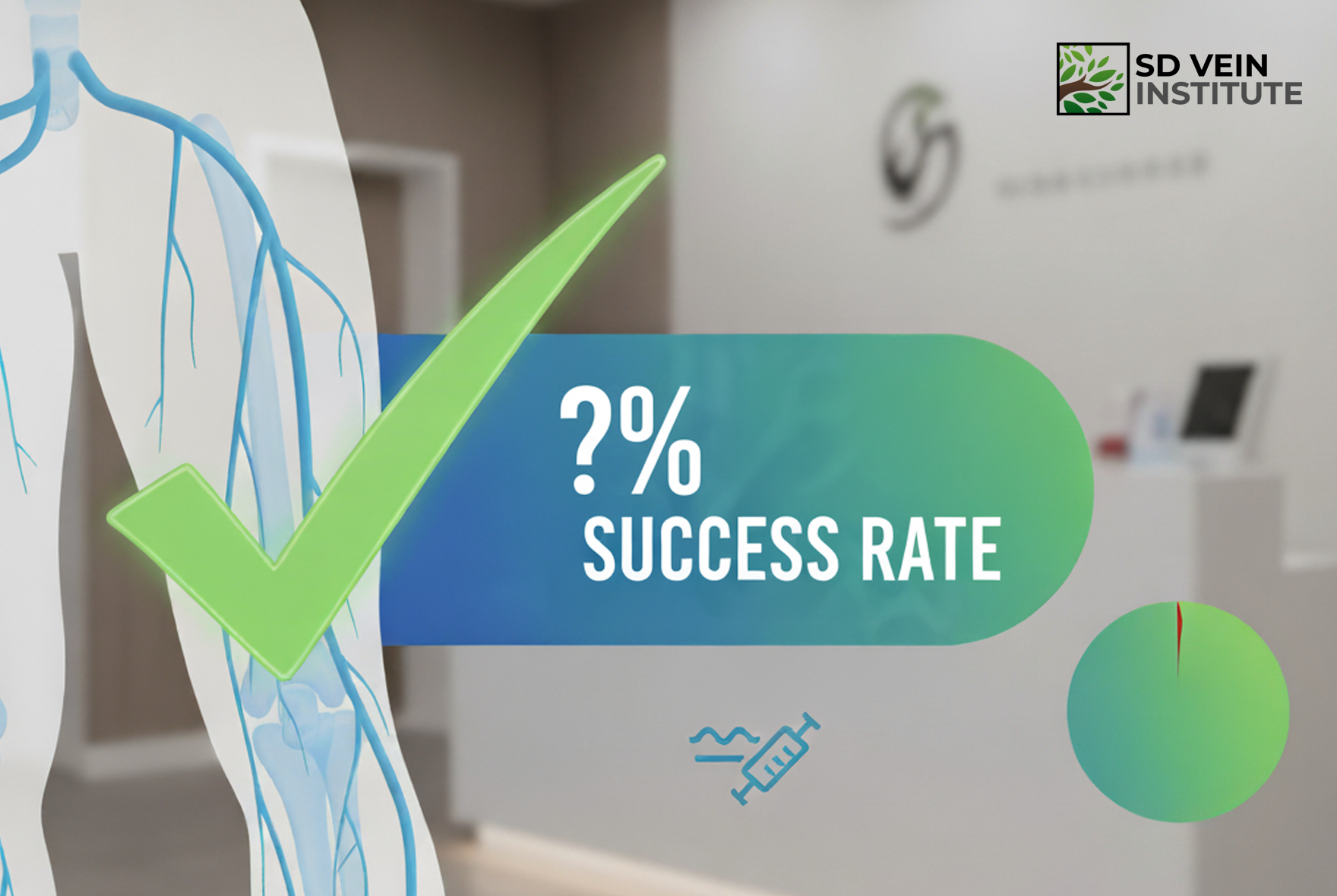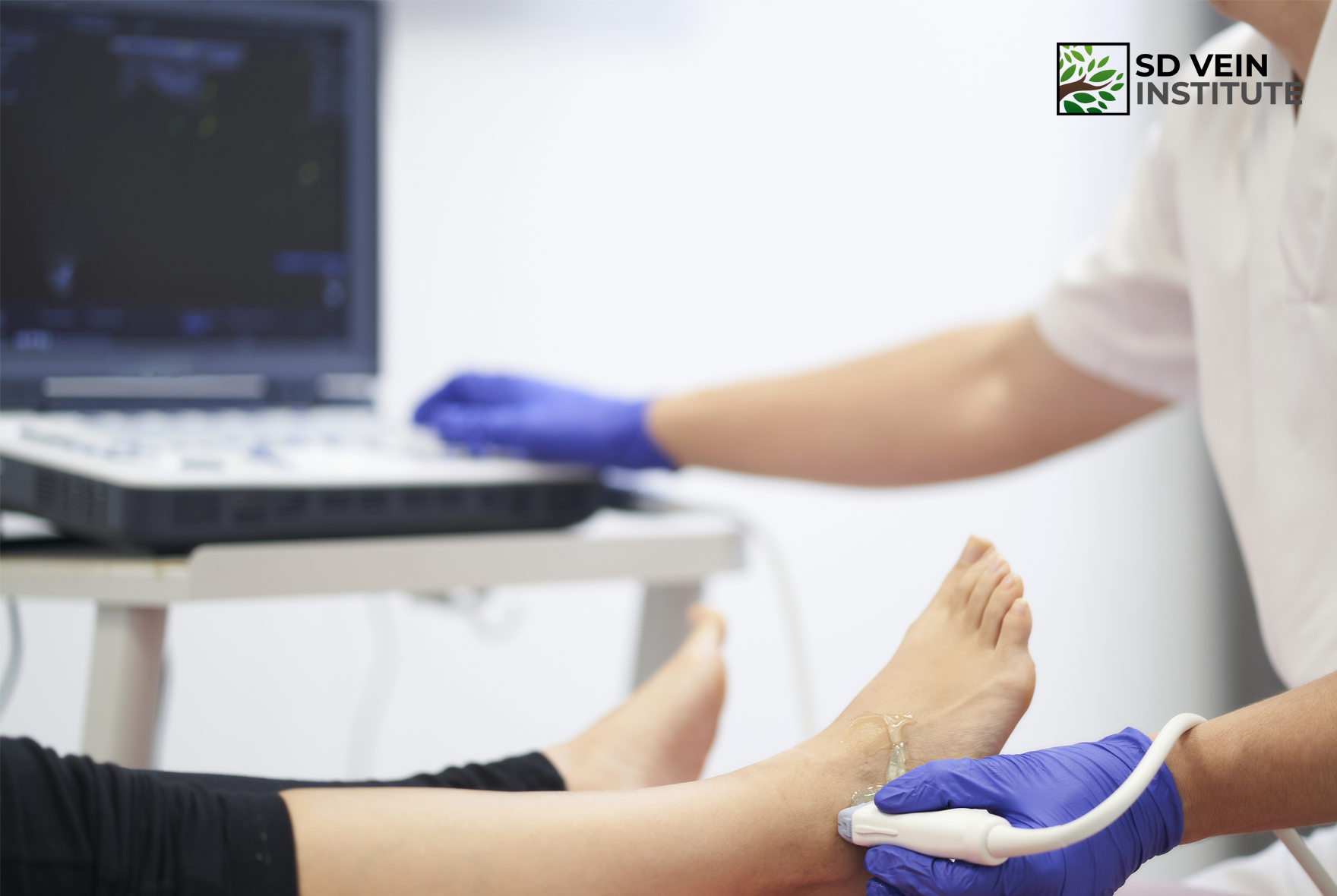Are Vein Treatments Safe for Patients with Other Medical Conditions?
TLDR
• Vein treatments can be safe for patients with conditions like diabetes or hypertension.
• Individual assessments by vein specialists are crucial for safe treatment.
• Lifestyle changes and medical management play roles in treatment outcomes.
• Always consult your healthcare provider before starting any treatment.
Do I Need a Referral from My Primary Care Doctor?
TLDR
• Referrals may be needed based on your insurance plan and medical needs.
• Primary care doctors coordinate your healthcare and suggest specialists.
• Vascular issues like varicose veins often need specialized care.
• Consult your insurance provider and healthcare team for guidance.
Are There Vein Treatments Specifically for Men?
TLDR
• Men can suffer from varicose and spider veins just like women.
• Treatments include sclerotherapy, laser therapy, and lifestyle changes.
• Early consultation with a vein specialist is crucial for effective treatment.
• Prevention includes exercise, maintaining a healthy weight, and avoiding prolonged sitting.
What is the Success Rate of Vein Procedures?
TLDR
Vein procedures are generally successful with high patient satisfaction.
Success rates vary by procedure and patient condition.
Minimally invasive procedures offer effective results with minimal downtime.
Consult a vein specialist in San Diego for personalized advice.
Do Weight Changes Affect Varicose Veins?
TLDR
Weight gain can increase the pressure on veins, worsening varicose veins.
Weight loss can alleviate symptoms but won't fully reverse existing varicose veins.
Treatment options include lifestyle changes and medical procedures like sclerotherapy.
Consult your healthcare provider for personalized advice.
Varicose vein treatment in San Diego is available at specialized clinics.
What Happens if Varicose Veins Are Left Untreated?
TLDR
Untreated varicose veins can lead to complications such as pain, swelling, and skin changes.
Potential severe outcomes include venous ulcers and deep vein thrombosis.
Treatment options vary, including lifestyle changes and medical procedures.
Early consultation with a vein specialist is crucial to prevent complications.
Recent studies highlight the importance of timely intervention for varicose veins.
What Should I Expect at My First Consultation?
TLDR
Expect a comprehensive evaluation of your vascular health.
Discussion of symptoms and conditions like varicose and spider veins.
Learn about treatment options, including sclerotherapy and surgical interventions.
Consultations include lifestyle recommendations and prevention tips.
Opportunity to ask questions and discuss concerns with a vein specialist.
Schedule an appointment with San Diego Vein Institute for personalized care.
Is Vein Treatment Painful?
TLDR
Vein treatments, such as sclerotherapy and laser therapy, are generally minimally painful.
Local anesthesia is often used to manage discomfort during procedures.
Sclerotherapy is effective for spider veins and small varicose veins.
Consult your healthcare provider to determine the best treatment option for your condition.
Lifestyle changes can help prevent vein issues.
Seek medical advice if you experience vein-related symptoms.
What are the Treatment Options for Varicose Veins?
TLDR
Varicose veins are bulging veins, often in the legs, that can cause discomfort.
Treatment options include lifestyle changes, compression therapy, sclerotherapy, laser treatments, and surgery.
Pros and cons vary per treatment; consult a vein specialist.
Prevention includes regular exercise and avoiding prolonged standing.
Seek medical advice if you experience severe pain or swelling.
Recent studies show advancements in minimally invasive procedures.
What Role Does Ultrasound Play in Diagnosing Varicose Veins?
TLDR
Ultrasound Imaging: Key tool for diagnosing varicose veins.
Symptoms: Swelling, pain, itching, and visible twisted veins.
Treatment Options: Include sclerotherapy, endovenous laser treatment, and surgery.
Prevention Tips: Regular exercise, weight management, and leg elevation.
When to See a Doctor: Persistent symptoms or vein changes.
FAQs: Cover causes, risks, and treatment recovery.
What Causes Varicose Veins?
TLDR
Varicose veins are swollen, twisted veins often caused by weak or damaged vein walls and valves.
Common symptoms include aching, swelling, and heaviness in the legs.
Risk factors include age, genetics, pregnancy, obesity, and prolonged standing.
Treatments include lifestyle changes, compression stockings, sclerotherapy, and laser treatments.
Consult your healthcare provider for personalized advice and treatment options.
Do Varicose Veins Always Get Worse Over Time?
TLDR
Varicose veins can worsen over time due to factors like age and genetics.
Symptoms include pain, swelling, and visible bulging veins.
Treatments such as sclerotherapy and laser therapy are effective.
Lifestyle changes can prevent worsening.
Consult a vein specialist for personalized advice.












